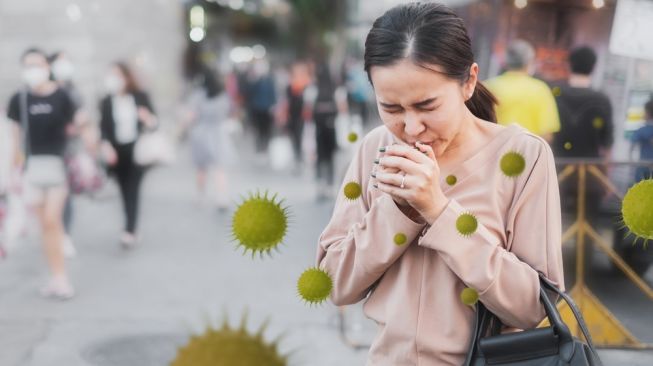<!–
Suara.com – Immune is needed in the midst of a pandemic corona virus Covid-19 recently. Unfortunately, some people may have problems with a weakened immune system and are looking for ways to improve them.
A study has linked consumption vegetables fermentation such as cabbage, which can lower the risk of being infected with the severe Covid-19 corona virus by boosting the immune system.
Research quoted from Mirror UK it has been linked to eating fermented vegetables with a lower risk of death from the Covid-19 corona virus.
Clinical gastrointestinal scientist Dr Anthony Hobson explains that the gut is the largest immune organ and is at the forefront of protecting the body from a number of bacteria and viruses.
Therefore, a person needs to have good bacteria in large quantities by eating various types of food. In this case, fermented vegetables are rich in probiotic bacteria that promote gut health and immune response.
This strong immunity is very important, especially during winter because it can increase the risk of transmission of the corona virus. Apart from consuming fermented vegetables, you can also increase your immunity in the following 5 ways.
1. Soap
Pallav Shah, Professor of Respiratory Medicine at Imperial College London explained that washing hands with soap and water is very effective at reducing the risk of infection with the Covid-19 corona virus.
A study from University College London shows that washing hands 6 to 10 times a day can reduce the risk of transmitting the Covid-19 corona virus by one third. If you can’t wash your hands, use a hand sanitizer or hand sanitizer.
2. Relieve stress
US researchers have found the effects of acute stress due to periods of independent isolation or at home during the Covid-19 corona virus pandemic. They saw a lot of people experiencing stress cardiomyopathy or broken heart syndrome.
This condition is an extreme response. However, psychological stress is also associated with a greater risk of infectious diseases, including colds.
Therefore, you need to manage and relieve stress with regular exercise, eat a balanced diet, avoid alcohol and get enough sleep.
3. Supplements
Research has shown that a deficiency in vitamin D can increase the susceptibility to respiratory infections. Public Health England recommends that everyone take a 10 mcg supplement daily when there is a lack of sun exposure.
Because, vitamin D has a protective effect against the corona virus. Even people infected with the Covid-19 corona virus and undergoing treatment in ICU 20 times are people who are deficient in vitamin D.
You can also get this vitamin D from fatty fish, liver, cheese and egg yolks. You can also eat seafood, poultry and nuts as natural supplements.
4. Sleep
Researchers found that people who slept less than 5 hours were 4.5 times more likely to catch the flu. Without adequate sleep, a person tends to produce and release protective proteins called cytokines.
Even chronic sleep deprivation has been shown to reduce the effectiveness of the flu vaccine. As a result, a person will get sick and catch viruses more easily.
5. Slimming
Being overweight is not a risk factor for respiratory infections, but it also makes symptoms harder to go away. Excess fat also has a negative effect on immune function leading to chronic inflammation.
If this happens when a person is exposed to the coronavirus, the cells responsible for attacking the virus will be less effective.
–


